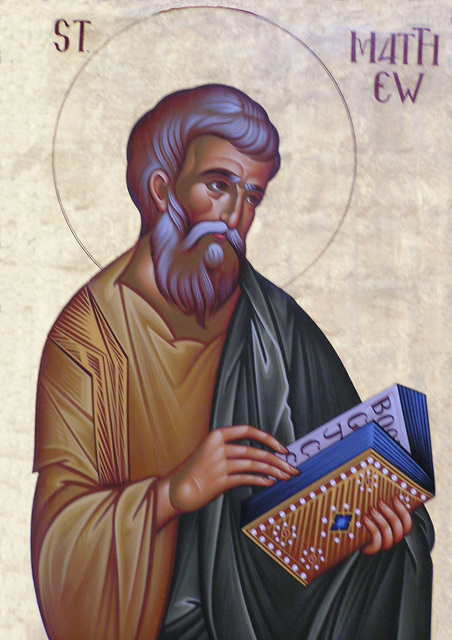Jesus
was one of those dangerous and dynamic people who lived with no attachment to
wealth. He called his followers to a radical anxiety-free existence while depending
on God for basic needs (Mt 6.19-33). This concept is so foreign in the contemporary
western world. Personally, I have no physical need that is not currently met.
Even more, I have no foreseeable need that I will be unable to fill. How do Jesus’
words about trusting God for basic needs apply in such a context?
In
the middle of his teaching on wealth Jesus provides an odd metaphor for understanding
his exhortation to trust God with basic needs.
The lamp of the body is the eye. Therefore, if your eye is sincere [ἁπλοῦς], your whole body will be shining. But if your eye is evil, your whole body will be dark. Therefore, if the light in you is dark, how great is the dark? (Mt 6.22-23)
The
adjective “sincere” [ἁπλοῦς] is unique, appearing only in this saying in the
entire NT (Mt 6.22 || Lk 11.34). Additionally, it is extremely rare outside the
NT, making it difficult to translate. The NIV, NRSV and ESV translate it “healthy,”
while the NASB reads “clear.” It is an odd word to use for vision because it
typically means something like “sincere” or “straightforward.” The Jewish
historian Josephus uses the adjective to describe “frank” speech in the context
of political intrigue (JW 1.469). The Jewish philosopher Philo uses the same word
to mean “simple” or “clear” when describing the commands of God in the Torah (Spec. Laws 1.299). Thus, it refers to honest and unpolluted disposition
as well as something uncomplicated.
There
is one clear parallel in Jewish literature from around the same time (c. 150 BCE).
In Testament of Issachar,
“The genuine [ἁπλοῦς] man does not desire gold, he does not defraud his neighbor, he does not long for fancy foods, nor does he want fine clothes. He does not make plans to live a long life, but awaits only the will of God.”[1]
This is quite similar to Jesus’ conclusion,
“But seek first the kingdom of God
and his righteousness, and all these things [basic needs] will be added to you”
(Mt 6.33).
In this text, the phrase “of God [τοῦ θεοῦ]” is a difficult
textual variant. Matthew rarely uses the phrase “kingdom of God” (Mt 12.28;
19.24; 21.31, 43) and when he does it appears he is following source material (Mt
12.28 || Lk 11.20; Mt 19.24 || Mk 10.25 || Lk 18.24). The textual evidence from
the very early codex Sinaiticus, however, supports the reading against the
majority of texts. Ultimately, I think including the phrase is the best reading
because otherwise it is difficult to explain the modifying pronoun “his” on
righteousness and it is easily conceivable for a scribe to drop a phrase so
rare in Matthew.
[1]
H. C. Kee, “Testaments of the Twelve Patriarchs,” The Old Testament Pseudepigrapha (ed. James H. Charlesworth; New
York: Yale University Press. 1983), 803.
